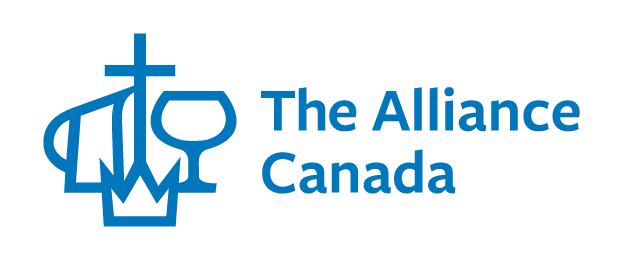Sponsorship FAQ's
As of 1 January 2018, the Christian and Missionary Alliance in Canada has signed a new sponsorship agreement with Immigration, Refugees and Citizenship Canada (IRCC). Under this new agreement, the minimum cost of sponsorship will be calculated using the prevailing Resettlement Assistance Program (RAP) rates for each province (See RSTP.ca for provincial RAP Rate charts), however, it must be recognized by sponsors and co-sponsors that the minimum RAP rates are insufficient for meeting the financial needs of the newcomers for the year of sponsorship commitment.
The following figures are estimates for a single individual (over 21 and not a senior) using the minimum RAP Rates in the following provinces:
|
PSR Minimum RAP Rate for a Single Individual (non-senior citizen) |
||
|
City, Province |
Without gifts in kind |
After gifts in kind |
|
N-W Territories, |
Contact CMA SAH |
Contact CMA SAH |
|
Vancouver, British Columbia |
$14,384 |
$7,479 |
|
Calgary, Alberta* |
$19,051 |
$12,090 |
|
Saskatoon, Saskatchewan |
$13,294 |
$5,451 |
|
Winnipeg, Manitoba |
$13,821 |
$5,356 |
|
Toronto, Ontario |
$14,216 |
$7,194 |
|
Montreal, Quebec |
Contact CMA SAH |
Contact CMA SAH |
|
Moncton, New Brunswick |
Contact CMA SAH |
Contact CMA SAH |
|
Saint John's, Newfoundland |
Contact CMA SAH |
Contact CMA SAH |
|
Halifax, Nova Scotia |
$11,536 |
$5,631 |
*NOTE: Alberta has a special allowance applied to the min RAP rates called “Barriers to Employment”
SPONSORSHIP UNDERTAKINGS SUBMITTED UNDER THE CMA SAH
Sponsoring groups will be required to prepare a detailed settlement plan which includes start-up costs and a monthly budget proposal which are based upon local estimated costs within the area of settlement.
|
PSR Annual Cost of Living for a Single Individual (non-senior citizen) |
|
|
City, Province |
Estimated Amount ** |
|
N-W Territories, |
Contact CMA SAH |
|
Vancouver, British Columbia |
$26,000 |
|
Calgary, Alberta |
$22,500 |
|
Saskatoon, Saskatchewan |
$20,426 |
|
Winnipeg, Manitoba |
$21,000 |
|
Toronto, Ontario |
$23,000 |
|
Montreal, Quebec |
Contact CMA SAH |
|
Moncton, New Brunswick |
Contact CMA SAH |
|
Saint John's, Newfoundland |
Contact CMA SAH |
|
Halifax, Nova Scotia |
$22,000 |
**2018 Figures calculated using numbeo.com
ADDITIONAL RESOURCES
The CMA's Financial Guidelines 2018 this package includes financial expectations and additional details to help you understand what the financial commitment is for a sponsorship undertaking.
REFUGEE SPONSORSHIP: A PRAYERFUL DECISION PROCESS
A desire to assist persecuted Christians comes naturally to believers, so we understand why this is a commonly asked question when church groups are considering refugee sponsorship. With the Syrian crisis which has impacted many, many people – about 5.5 million people from Syria alone (out of a global refugee crisis of over 22 million people) have been forcibly displaced from their homes and each of them share a well-founded fear of persecution, regardless of their faith background. We do well to remember that in addition to Christians, there are those from other minority groups also being targeted by ISIS and, that there are even those of the Muslim faith who do not submit to and agree with what ISIS is doing that have been forced to leave their homes.
It may help you further to understand what our commitment as a Sponsorship Agreement Holder with Citizenship and Immigration entails:
As a sponsorship Agreement Holder with Citizenship and Immigration Canada, we must ensure we proceed with integrity and without bias or discrimination. The C&MA in Canada has agreed to be ethically and legally bound to remain unbiased in our selection process so as not to discriminate. (See the code of ethics document we provide for our Alliance refugee sponsorship teams to implement).
As followers of Jesus, we are additionally called to have a Kingdom perspective and a counter-cultural vision to see how God offers us a chance here in Canada to be part of his reconciling work in the world. Through the sponsorship of Muslims or other faith groups, (many of whom are fleeing because of their fear and intolerance for what ISIS is doing) we have the privilege of demonstrating the love of God through our actions as we care for and love others just as we would our brothers and sisters in Christ.
For in Matthew 5:46-48, Jesus said: “If you love those who love you, what reward will you get? Are not even the tax collectors doing that? And if you greet only your own people, what are you doing more than others? Do not even pagans do that? Be perfect, therefore, as your heavenly Father is perfect.”
One last important point to consider relates to asking ourselves why refugees exist in the first place. Men, women and children are forcibly displaced from their country of origin because of a “well-founded fear of persecution for reasons of race, religion, nationality, membership of a particular social group, or political opinion.” If we choose to sponsor a family based on their religious affiliation or nationality, then are we not essentially contributing to the core problem of why refugees exist in the first place?
As you can see, there is not a short answer for this type of question. Both Christian and non-Christian refugees alike are suffering from persecution and are in need of sponsorship. That being said, we advise sponsoring groups to allow the Spirit to guide their decisions on “whom to sponsor”- a question that is set apart from race, religion, or nationality. Since each church group has uniquely different opportunities available to them, based on where and how they see God calling them to “welcome the stranger” we anticipate that these decisions will be arrived at after much prayerful consideration.
Refugee Sponsorship: Dispelling Myths and Countering Fear-based Opportunism
In 2015, when people around the world opened their eyes to the Syrian Refugee Crisis, Canadian citizens opened their hearts and homes to “welcome the stranger” and modelled a truly humanitarian response.
The sad reality is that around the same time, some opportunistic companies sought to capitalize on an unsupported fear of personal liability, which is based upon a myth that refugees pose an increased risk of terrorism. This is simply not true. The bottom line is that as sponsors, we need to be critical thinkers (and advocates!) who actively challenge misconceptions or myths, and choose to become informed by referring to legitimate claims and honest risk assessments.
“As with the population as a whole, a tiny minority of refugees commit crimes, however there is no logical connection between the fact that they arrived as a refugee and the crime. If a Torontonian commits a crime, we don’t immediately assume that all Torontonians in general are more dangerous.”
- http://www.ctvnews.ca/canada/fact-check-how-are-refugee-claimants-vetted-in-canada1.3299585
“the chance of an American being murdered in a terrorist attack caused by a refugee is 1 in 3.64 billion per year while the chance of being murdered in an attack committed by an illegal immigrant is an astronomical 1 in 10.9 billion per year. By contrast, the chance of being murdered by a tourist on a B visa, the most common tourist visa, is 1 in 3.9 million per year.”
- https://www.cato.org/publications/policy-analysis/terrorism-immigration-risk-analysis
“increasingly violent extremists in Canada are born here or arrived when they were children (typically before the age of 10). Indeed, in recent years the three most serious attacks in Canada inspired by alQaeda/Islamic State are Martin Couture-Rouleau, Michael Zehaf-Bibeau and Aaron Driver, all born in Canada. In other words, the radicalization that drove these individuals occurred in Canada – not abroad.”
“Within Canada, few studies explore the relationship between immigration and crime or violence, but a 2009 study by Statistics Canada found that "The higher the proportion of recent immigrants in a neighbourhood, the lower the rates of drug offences, all types of violent crime, mischief and other thefts… high-immigration neighbourhoods generally have lower crime rates." It concluded that "given two neighbourhoods where residents have comparable access to socio-economic resources, the one with a higher proportion of recent immigrants is likely to have a lower crime rate."”
“No terror-related charges laid against man accused of stabbing police officer, running down pedestrians”
- http://www.cbc.ca/news/canada/edmonton/terrorism-charges-edmonton-attacks-1.4316450
A final point to reflect on is that by giving these unsupported myths any attention, we are in fact fueling the many reasons why people become refugees in the first place: being discriminated/persecuted because of religious, ethnic, or socio-economic group affiliation.
REFUGEE SPONSORSHIP: SENDING FUNDS TO REFUGEES OVERSEAS
Before the family arrives in Canada, it is not advisable to send funds abroad to support refugees you hope to sponsor. Such support creates very unrealistic expectations and churches may be at risk of losing their charitable status with the Canada Revenue Agency (CRA) if they are found to be in violation of the Income Tax Act. Canadian registered Charities cannot send funds abroad without ensuring that an “Agency Agreement” is in place and maintaining “Direction and Control” over activities carried out outside of Canada (see CG-002 - Canadian registered charities carrying out activities outside Canada).
Sponsors should be aware that they are not liable for debts the refugee incurs before coming to Canada (e.g. travel loans, medical expenses, fines to be paid to the country of asylum prior to obtaining exit visas). The Immigration Loans Program is available to refugees selected for resettlement to cover the eligible expenses related to transportation to Canada.
If the family you wish to sponsor is in urgent need of assistance while they are overseas, and you aren’t sure how to help them, contact the CMA Refugee Sponsorship Program staff at [email protected] who may be able to provide guidance or contact UNHCR to assist the family abroad.

